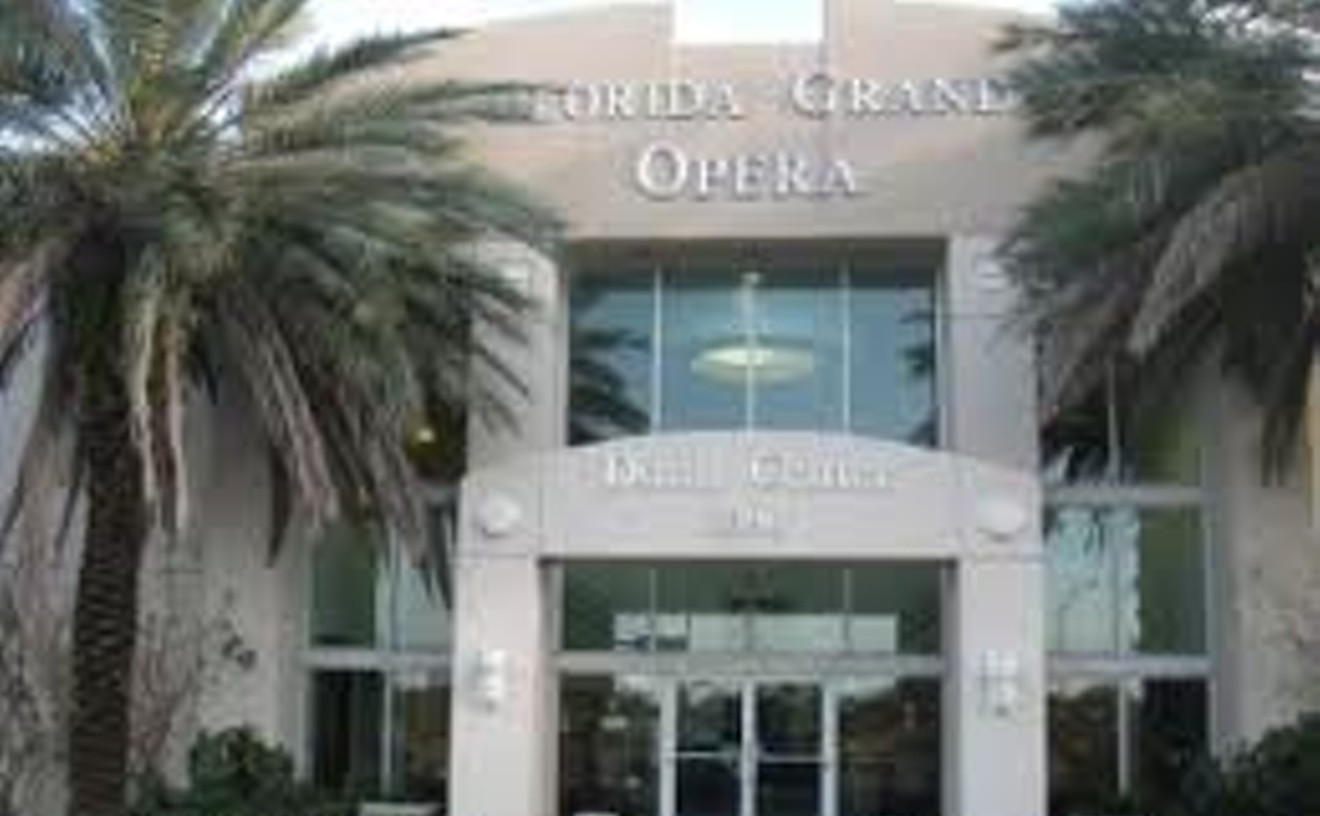Best Part-Time Citizen
Aaron "the Downtown Don" Bondaroff
At age 33, Aaron "the Downtown Don" Bondaroff can't be called a hip kid anymore. He's just a little too old for that tag. These days, Bondaroff is more a man about town. Two towns, actually. A half-Jewish, half-Puerto Rican high school dropout, Bondaroff initially made his mark during New York City's mid-'90s Alleged Gallery boom. But unlike other scene stars such as Harmony Korine and Ryan McGinley, the Don didn't actually make art. He was just the most downtown dude around — a last-minute party promoter, a self-taught curator of the coolest shit, a BFF to everyone who mattered. And Bondaroff eventually turned this niche celeb status into a career with his store-slash-gallery-slash-hipster-clubhouse aNYthing. Now, after a decade-plus hyping, repping, and shaping the Lower East Side scene, the Don (with help from local business partner Al Moran) brought his brand of NYC raditude to Miami — first via killer west-of-Wynwood art space O.H.W.O.W. and then through Bar, a sort of resurrected PS14 with superpowers. Over the past year and a half, the Don's imported famous friends have included Korine, NeckFace, the Ed Banger crew, Todd Jones, and David Lynch, while he still has tons of Miami buds such as Freegums, Psychic Youth Inc., and Roofless Rex. You know, a downtown dude can never have enough BFFs.
Best Set Design in a Play
Tim Connelly for "Blasted"
Basically, a classy hotel room is demolished by a mortar blast in about five seconds, and the smoking wreck continues to crumble throughout the remainder of the play. The skies open up and rain pours through what used to be the ceiling, squarely onto the face of actor Todd Allen Durkin, who's half-hiding in a hole in the floor. It didn't just look like the approximation of a ruin; Tim Connelly's set seemed to be a ruin, and the darkening sky beyond seemed to be the sky. Then, in a matter of seconds, the whole thing was reassembled and the set became a hotel room once more.
- 1200 Anastasia Ave., Coral Gables, 33134 Map
- 305-446-1116
- www.gablestage.org
Best Civic Lady
Sarah Nesbitt Artecona
For a dozen years, Sarah Nesbitt Artecona crafted the messages that Miami-Dade commissioners wanted to convey to the public. As director of the county's communications department, Artecona was their voice. But one too many tongue lashings by the likes of former commissioner Miriam Alonso, and she sought greener (and orange) pastures at the University of Miami as the school's communications division associate vice president. In 2007, she was promoted to assistant vice president to UM chief financial officer Joe Natoli. During her seven years at UM, Artecona has found time to serve on various civic groups, including the Coral Gables Chamber of Commerce, Goodwill of South Florida, and the Susan G. Komen Breast Cancer Foundation. Given the dedication Artecona shows the Magic City, we'll forgive her allegiance to her alma mater, the University of Alabama Crimson Tide.
Best Theater for Drama
The Naked Stage at the Pelican Theatre
We believe theater comes best in small packages, and the Naked Stage's space is so tiny that the folks in the back row are closer to the actors than the people in the front row at the Arsht Center. Such intimacy allows the artists to utterly transform a space, to make the audience feel as though they inhabit an extension of the imaginary world constructed upon the stage. There was no more immersive theatrical experience in Miami last year than the Naked Stage's Macon City: A Comic Book Play. We were in Macon's ruins, and we could almost smell the toxic ooze sluicing through its overburdened gutters. The Naked Stage has managed this trick show after show. Now if only they would do more. Macon City was their only show in 2009, and for 11 months of the year, we missed them terribly.
- 11300 NE Second Ave., Miami Shores, 33161 Map
- www.barry.edu/fine-arts/
Best Power Couple
Mera and Don Rubell
When it comes to art collectors in town, there are the Rubells, and then there's everybody else. Martin Margulies has his own minimuseum, so does Ella Fontanals-Cisneros, but the Rubells opened their 5,000-piece collection to the public a decade ago, before any of those amateurs. By choosing Wynwood as their base, they raised the blighted neighborhood's profile, which soon turned into a gallery anthill. And they've also functioned as de facto cheerleaders to the local scene, with their Art Basel breakfasts a must during that annual week of excess. But it's their patronage of local artists such as Purvis Young that have made the native New Yorkers our very own Medicis. Don, a former gynecologist, and Mera, a former Head Start teacher, began collecting art in the '60s, building their collection by spotting unknown artists the way a broker selects stocks with potential. When they came to Miami, they started acquiring our best: Young, Jose Bedia, Bert Rodriguez, and Naomi Fisher are just a few of the names on their walls. Recently, the Rubells bought a $6.5 million property in Washington, D.C., to double as a satellite of their collection. Were they telegraphing moving plans? Mera Rubell would say only: "Nobody should take us for granted."
Best Opera
"Suor Angelica" by Puccini

This minor Puccini one-act, often overlooked, stole the show from the more famous I Pagliacci in a Florida Grand Opera double-header. It's difficult to make a bunch of identical nuns look compelling, but director Sandra Pocceschi asserted some cagey blocking to let us know who was whom, and as this brief tale of regret and injustice played out on FGO's stunning convent set — which featured a huge, weeping Virgin Mary looming like a monster, or a god — soprano Kelly Kaduce's voice pierced the auditorium like a big, blue laser and sold the opera as the masterpiece that few believe it to be.
- 8390 NW 25th St., Miami, 33122 Map
- 800-741-1010
- www.fgo.org
Most Sexed-Up Religious Figure
Father Alberto Cutié
Once dubbed "Father Oprah" by his devout Catholic followers, Alberto Cutié's handsome face and sweet Spanish words reached millions of homes in more than 20 countries via television, radio, books, and a syndicated newspaper column wherein he doled out relationship advice. Ah, the irony. His faithful parishioners took the counsel of a man who committed to a vow of celibacy, only to learn he knew quite a bit about intimacy. After all, he deceived millions of men and women into thinking his steady was religion, when all along it was really a chick named Ruhama Canellis. At least he eventually made an honest woman out of her. In May, here's what he had to say in an interview with Univision's Teresa Rodriguez after photos of the two snuggling in the sand surfaced:Teresa Rodriguez: You're a public figure, right? What were you thinking showing such public displays of affection — kissing her, touching her? Weren't you afraid someone would discover your secret sooner or later? Padre Alberto: I will tell you the truth. This will sound really ironic and a bit strange, but I knew God was watching.Yes, Father, G-d was watching. And unfortunately for you, so were the paparazzi.
Best Film Festival
Borscht Film Festival
There are two words you don't want to hear at a film festival: technical and difficulties. But when the Borscht Film Festival was delayed, the Gusman audience of more than 1,500 people happily waited two hours while a new projector was fetched from Hialeah. Local artists in the audience entertained with impromptu performances. Afrobeta and Sirens & Sealions played a few ditties, while Jessica Gross and Daniel Reskin brought the laughs. It was the kind of collaborative spirit that makes you want to high-five the person seated next to you. The serendipitous showcase of 305 talent was the perfect kickoff for a film festival started by a couple of New World kids determined to find fertile soil for filmmaking right here in Miami. They've been nurturing local film talent since 2005. But in 2009, the Borsht Film Festival finally emerged from the underground. Operating with its first actual budget, the festival moved from the understated Tower Theater in Little Havana to the grand, faux-starry-skied Gusman Center in downtown Miami. The one-night-only screenings drew crowds that could make an international film festival jealous. Folks even tried to buy the free tickets in order to secure a seat. With the new projector up and running, the crowd enjoyed "Borscht Selects," short films submitted by Miami filmmakers under the age of 30, and "CCCV Stories," films commissioned by BFF and cofinanced by the Miami World Cinema Center. Standouts included "Velvet," a Miami New Wave short set in the Design District, a flaneur's stroll through Liberty City in "Day N Night Out," and a documentary about the Miami Circle. We're such fans, we even gave BFF a New Times Mastermind genius grant. It's our way of shouting, "Do it again!"
Best Criminal Conviction
Ex-Judge Phil Davis
In 1993, Phil Davis performed the judicial equivalent of a David Blaine extreme magic act. This year, all the card tricks in the world couldn't save him. Back in the early '90s, Davis, then a sitting Miami-Dade judge, had been swept up in a massive FBI sting called Operation Court Broom. The feds recorded Davis on tape accepting a $20,000 bribe from a lawyer. But Davis shimmied out of a conviction in '93 with a Meryl Streep-worthy performance on the stand. Weeping openly, Davis admitted to snorting cocaine in his chambers and stammered, "I could have been someone!" Jurors bought it, and he walked. But this year, Davis found himself back in court. And this time, karma proved to be a sweet, sweet bitch. Four years after walking on the corruption charges, Davis had started a nonprofit called Miami-Dade Residential College. The smooth-talking disbarred lawyer glad-handed his way into thousands of dollars in county grants for the program, which was supposed to help ex-cons learn real-world skills. Instead, it helped one con in particular — Davis himself — pad his wallet. Prosecutors showed that Davis and his partner inflated salaries, invented expenses, and stole more than $80,000 in taxpayer cash. On the stand in January, Davis broke down again. Tears flowed onto his prison jumpsuit. This time, there was no magic — only justice. Davis got 20 years. Good riddance.
Best Movie Shot on Location
I Love You Phillip Morris
You know, we didn't always have Snooki and various Kardashians shooting brain-cell-killing lasers out of their otherwise empty heads at us through the television box. A long time ago, people actually went to theaters and watched these things called films. You probably wouldn't know it by looking at the slate of filming permits filed in Miami-Dade this past year, but it's true. They were these weird things: 70 minutes to three hours, depending on how ballsy the director was feeling. Usually with plots — you know, a beginning, middle, and end. Characters learned things, changed as human beings. In the best ones, maybe the audience did too. I Love You Phillip Morris is one of those films. Jim Carrey and Ewan McGregor star in it (maybe your grandparents have heard of them). They play two gay lovers who meet in prison, and then some high jinks ensue in Miami. Wide release of the film has been held up in America because of that whole two-gay-lovers thing. Apparently, this country cannot handle the sight of Jim Carrey wearing a tacky Versace-like outfit while walking around South Beach with a seminaked male lover and then offering him a daiquiri poolside. If the film opens in more theaters, we highly recommend you take your eyes off Snooki's and Kim's buns and see it.





